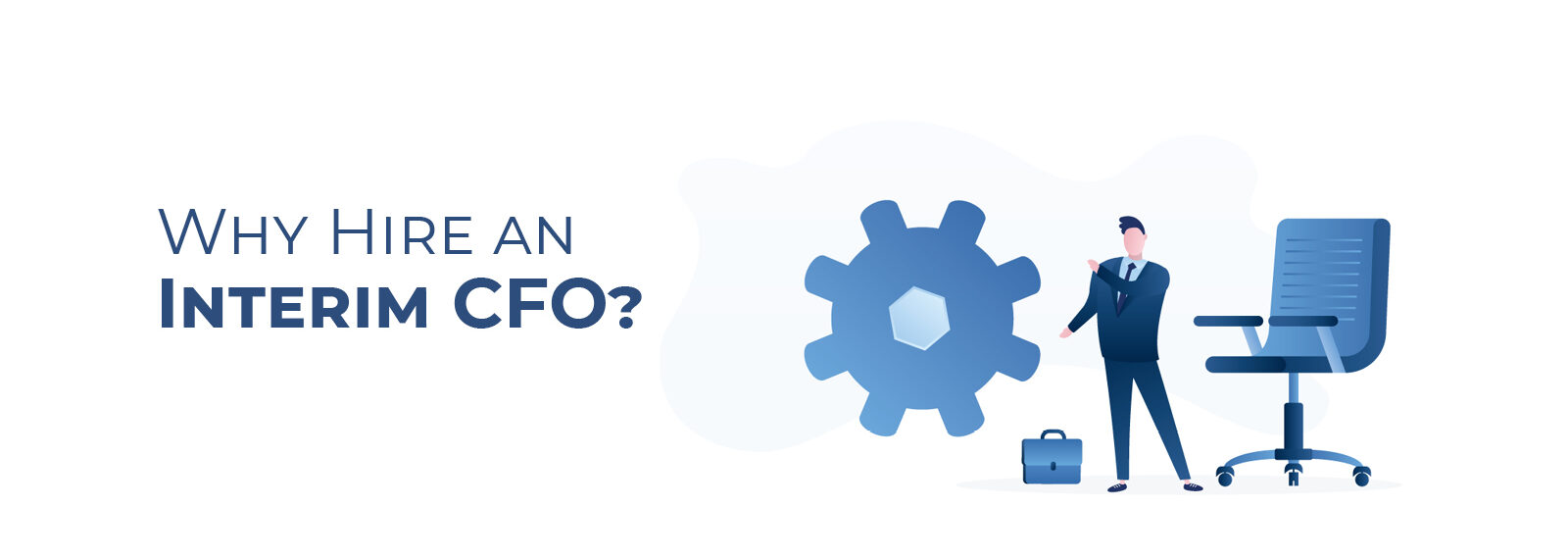The Role of an Interim CFO in Your Business
Did you know that 80% of businesses operate without a CFO? A permanent CFO can be expensive, leaving some owners unsure of how to control their financial health. Unlike a permanent CFO, an interim CFO is hired to address immediate financial challenges and opportunities, often during transition or change. This temporary role allows businesses to benefit from high-level financial leadership without committing to a long-term employment contract.
Reasons for Hiring an Interim CFO
Hiring an interim CFO can be a strategic decision for companies facing various challenges and opportunities. Here are some common scenarios where an interim CFO can be particularly beneficial:
- The sudden departure of the CFO: When a permanent CFO leaves unexpectedly, an interim CFO can temporarily assume financial leadership. This prevents disruptions in financial operations and provides time to find a suitable long-term replacement.
- Transitional periods: An interim CFO can offer the expertise needed to navigate these transitions smoothly during significant changes, such as restructuring or market shifts. Their experience can help stabilize the company and maintain investor confidence.
- Mergers and acquisitions: An interim CFO can play an important role during mergers and acquisitions by managing due diligence, financial analysis, and integration processes. Their objective perspective can facilitate smoother transactions and better alignment of financial strategies.
- Rapid growth: Companies undergoing rapid growth may require help managing their finances efficiently. An interim CFO can implement robust financial systems, enhance cash flow management, and create sustainable growth without compromising financial health.
- Financial restructuring: when financially distressed or restructuring, an interim CFO can provide and execute turnaround strategies. Their cost management, debt restructuring, and financial planning skills are invaluable in restoring financial stability.
Key Responsibilities of an Interim CFO
The responsibilities of an interim CFO are comprehensive and include maintaining the financial health of any corporation. Key responsibilities include:
- Financial management and oversight: An interim CFO ensures accurate and timely financial reporting, budgeting, and performance tracking. They establish robust financial controls, monitor expenditures, and provide insights into cost-saving opportunities. Their oversight extends to managing accounting teams and maintaining financial policy and procedure adherence.
- Strategic planning and execution: An interim CFO develops and implements financial strategies aligned with the enterprise’s long-term objectives. They work closely with senior management to set financial goals, create budgets, and develop forecasts. Leveraging their strategic insights, they help guide your team through growth phases, market expansions, and other significant organizational initiatives.
- Cash flow management and forecasting: Effective cash flow management is vital for any business. An interim CFO monitors and manages cash flow so that the company can meet its obligations. They analyze cash flow patterns, forecast future cash needs, and implement strategies to optimize liquidity, such as adjusting payment terms or securing short-term financing.
- Financial reporting and compliance: Ensuring compliance with financial regulations and standards is another key responsibility. An interim CFO prepares accurate financial statements, oversees audits, and checks that all financial activities comply with relevant laws and regulations. This role helps maintain financial integrity and keep legal issues at arm’s length.
- Risk management and mitigation: Identifying and working to mitigate financial risks is a fundamental practice for protecting your assets. An interim CFO conducts risk assessments, implements internal controls, and develops contingency plans to address potential financial disruptions. This proactive approach helps safeguard your financial stability.
- Investor relations and fundraising: An interim CFO manages investor relationships and secures necessary funding to support operations and growth. They communicate your financial health and strategic direction to investors, prepare detailed financial reports, and engage in fundraising activities to attract investment capital or secure loans.
Skills and Qualities of an Effective Interim CFO
An effective interim CFO brings distinctive skills that allow them to produce positive outcomes for your corporation. Here are the essential skills and qualities in more detail:
- Financial Expertise: An interim CFO must deeply understand financial management, accounting principles, and corporate finance. This includes budgeting, forecasting, financial analysis, and financial reporting knowledge, making their ability to grasp your financial situation quickly and identify areas for improvement quite valuable.
- Strategic Thinking: Thinking strategically is a key attribute of an interim CFO. They must be able to develop and implement long-term financial strategies that work towards the overall objectives. This involves understanding the current financial landscape and anticipating future trends and challenges, allowing you to stay ahead of the curve.
- Leadership: Strong leadership skills are required for an interim CFO. They must be able to guide and influence the finance team and other executives to achieve your financial goals. Effective leadership involves clear communication, setting expectations, and fostering a culture of accountability and performance.
- Adaptability: An interim CFO must be highly adaptable and able to acclimate to new environments and business challenges quickly. This flexibility allows them to hit the ground running and make immediate contributions, regardless of the company’s current state. Their ability to manage change and navigate uncertainty is critical for success in this role.
- Problem-Solving Abilities: Identifying issues and developing effective solutions is a hallmark of an effective interim CFO. They must be able to analyze complex financial problems, consider multiple perspectives, and implement practical and impactful solutions. This skill is particularly needed in times of financial distress or significant change.
- Communication Skills: Communication skills are paramount for an interim CFO. They must convey complex information clearly and concisely to stakeholders, including executives, board members, employees, and investors. Strong communication can also help build relationships and foster collaboration within the corporation.
Integration with the Existing Team
Integrating an interim CFO into the existing management team is crucial for ensuring their success and maximizing their impact. Here are key strategies for effective integration:
- Clear Communication of Role and Objectives: Clearly define the interim CFO’s responsibilities and goals for the organization. Ensure all team members understand the interim CFO’s mandate and how it aligns with the company’s overall strategy.
- Fostering an Environment of Collaboration: Encourage open communication and collaboration between the interim CFO and existing team members. Promote a culture of teamwork to facilitate a smooth working relationship.
- Building Trust with Executives and Employees: Establish trust by involving the interim CFO in key meetings and decision-making processes. Create opportunities for the interim CFO to demonstrate their commitment to your success.
- Providing Necessary Resources and Support: The interim CFO must access all the necessary resources, including financial data, tools, and support staff. Facilitate introductions and integration into your workflows and systems.
- Setting Up Regular Check-ins and Feedback Loops: Schedule meetings to discuss progress, challenges, and feedback. Maintain open lines of communication so that any concerns are addressed promptly and better, guaranteeing alignment with objectives.
An interim CFO is key for businesses facing financial challenges or transitions. By leveraging the leadership of an interim CFO, companies can navigate through difficult periods, stabilize their financial operations, and achieve growth and success. An interim CFO can be the key to unlocking your company’s potential during times of change.
Need help finding an interim CFO for your organization? Contact a NOW CFO specialist for more information.



